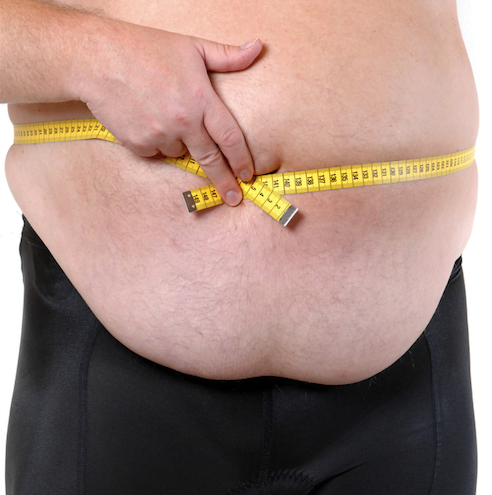Lose weight naturally
Obesity is a medical condition which involves excess body fat accumulating to the extent that it has a negative effect on health. People are generally considered obese when their body mass index (BMI), a measurement obtained by dividing a person’s weight by the square of the person’s height, is over 30 kg/m2. In the UK, 20% of the population are classed as obese.
Overweight is defined as falling within the range of 25–30 kg/m2. While less serious than obesity, the impact on health is still harmful, especially if associated with other negative lifestyle factors such as a lack of exercise, high blood sugar, high cholesterol, low polyphenol intake, smoking and poor gut health. It affects 60% of the UK population, and this figure is increasing year by year. 40% of all cancers are thought to be linked to excess weight.
Day to day problems linked to obesity
- Breathlessness
- Hot flushes
- Sweating
- Snoring / Sleep apnoea
- Limitation of physical activity
- Fatigue
- Poor gut health
- Joint pains (back / knee / hips)
- Low self-esteem
- Feeling isolated
Medical complaints linked to obesity
- Type 2 diabetes
- High blood pressure
- Heart disease and strokes
- Indigestion
- Depression
- Osteoarthritis
- Fatty liver disease
- Kidney disease
- Pregnancy problems
- Urinary problems
- Impotence
How does obesity increase health problems?
Direct biochemical mechanisms:
- Oestrogen levels higher / Progesterone levels lower
- Insulin resistance
- Insulin-like growth factor receptor (IGF-1)
- Higher leptin / lower adiponectin
- Inflammation – Cox 2 overexpression
Indirect mechanisms:
- More difficult to exercise due to shortness of breath and arthritis
- Lower vitamin D levels
- Alters gut health
Benefits of exercising if overweight
Direct mechanisms – reducing risks (independent of weight loss):
- Improves insulin sensitivity (Lowers IGF-1)
- Lowers sex hormones
- Enhances antioxidant enzyme production
- Improves DNA repair P53 (BCRA 1&2 expression)
- Epigenetics (telomere length, gene expression)
- Anti-inflammatory (prostaglandin & COX-2)
- Reduces cholesterol and saturated fats
Indirect mechanisms:
- Helps individuals lose weight (10% after 6 months >3.5hrs/wk)
- Reducing weight elevates mood
- Increases light exposure and vitamin D – if exercising outside
- Helps arthritis
Tips on losing unwanted weight
The trick is not to put on weight in the first place, but of course, this is easier said than done, if we were all perfect we would not be human. Remember, it is never too late to start slimming down.
Below is a list of lifestyle habits which aim to reduce calorie intake, increase energy expenditure, alter the gut flora and reduce inflammation – all of which can help reduce excess weight.
Tips for eating fewer calories
- Do not add any processed sugar to foods or drinks
- Avoid sugary drinks
- Look at the label to check sugar has not been added to foods such as crisps or bread
- Avoid faddy diets
- Train yourself to eat slower and chew your food carefully
- Try not to snack between meals
- Eat your evening meal early
- Do not snack after your final meal of the day – if peckish, try a herbal tea
- Have no processed sugar for breakfast – see ultimate breakfast bowl
- Distract yourself from thinking about food
- Avoid processed food
- Eat less fatty foods
- Avoid pastries, pies, pasties, donuts, cakes, muffins
- Cut fat off meat
- Eat less meat and more fish
- Eat a large salad with every meal (this fills you up)
 Try to improve gut health
Try to improve gut health
- Increases whole body inflammation so the body enters a defence mode, storing more energy >>
- Reduces joint health so exercise is more uncomfortably >>
- Effects sleep causing fatigued in the day reducing motivation to diet and exercise >>
- Increases hunger hormones encouraging us to eat more >>
- Interferes with oestrogen levels, increasing menopausal symptoms including weight gain >>
As part of a weight reduction programme, strategies to improve the gut microbiome should have a greater role. This would including increasing intake of probiotic foods and reducing processes sugar and artificial sweeteners and even considering taking a good quality supplement
Increase intake of phytochemical rich foods
For long term weight management more permanent and imaginative dietary strategies are required. In particular, exploring the role for increasing phytochemical intake. Phytochemicals are natural compounds found in plants. They have been shown to have various health benefits, including potential roles in weight management. Here are some ways in which phytochemicals may play a role:
Appetite regulation: Some phytochemicals, such as catechins found in green tea and capsaicin in chili peppers, have been shown to help suppress appetite and increase satiety. By reducing feelings of hunger, these compounds may indirectly support weight management by reducing calorie intake [Tucci]
Thermogenesis: Certain phytochemicals, like gingerol in ginger and capsaicin, found in spicy foods like chili peppers have thermogenic properties. They can slightly increase the body’s metabolic rate and energy expenditure, which may contribute to weight management efforts [Ojewole].
Fat metabolism: Phytochemicals such as epigallocatechin gallate (EGCG) in green tea extracts, resveratrol and curcumin, have been studied for their potential to influence lipid metabolism. They have been shown to directly interact with adipose tissues (preadipocytes, adipose stem cells, and immune cells) reducing their propensity to store energy [Kim].
Blood sugar control: Flavonoids, a type of phytochemical found in berries such as cranberries and vegetables such as broccoli, have been associated with improved blood sugar control. By helping to regulate blood glucose levels, these compounds may indirectly support weight management, as stable blood sugar levels can reduce cravings and prevent overeating [Johnson, Kim].
Anti-inflammatory effects: Chronic inflammation is often associated with obesity and metabolic disorders. Some phytochemicals, such as polyphenols found in fruits, vegetables, and spices, possess anti-inflammatory properties. By reducing inflammation, these compounds may contribute to overall health, less joint pains so facilitate great physical activity [Kim, Thompson].
Helping gut health: Some phytochemicals act as prebiotics which promote a healthy gut health microbiome, in particular ellagitannin found in tea as well as the phytochemicals in pomegranate and turmeric – the role of gut health and weight is highlighted above.
How to increase daily phytochemical intake
Asian and Mediterranean diets are typically abundant in phytochemical-rich fruits, mushrooms, vegetables, salads, herbs, spices, teas, nuts, berries, seeds and legumes. Typical western diets, on the other hand, are often deficient in phytochemicals. Ideally, we need to eat a lot more of them, preferably some with every meal of the day. A lot of emphasis is placed on exotic, rare fruits (superfoods) but they are easily available in the average supermarket in the UK.
Less obvious sources include dark chocolate, chilli, red wine, coffee and tea so you don’t have to have a boring diet to enjoy them. Here are some healthy receipts which include tasty phytochemical rich foods.
In addition to whole meals, there are many other practical ways to boost phytochemical intake on a daily basis such liquidising vegetables, shots, soups and eating sprouting pulses (read more). A well made and researched nutritional supplement will help increase phytochemical intake without taking extra calories:
 Role for phytochemical rich supplements
Role for phytochemical rich supplements
In the busy world we live in, it’s is often difficult to prepare foods with enough phytochemicals on a daily basis. A well made supplement, is a convenient way to increase intake and spread intake across the day. The problem is, the quality of over the counter supplements can be very variable and most have not been evaluated in robust medical trials.
The notable exception is YourPhyto which was designed to provide a safe and evidence-based way of increasing healthy plant phytochemical from the start of every day.
It is the only supplement which harnesses the benefits both whole foods and targeted extracts from the same plant. This ensures both a broad range of phytochemicals from the whole plant as well as boosting, measurable intake of specific candidate phytochemicals which are most likely to confer the health benefits.
It was developed by the scientific committee of the latest national intervention study following scrutiny of the most robust clinical studies both from the UK and internationally. Because it was made for a nationally approved clinical study it has a level of quality assurance unprecedented in the supplement world: Yourphyto contains only pure plants, all of which have been evualuated in weight reduction programmes:
- Broccoli: Whole dried florets
- Turmeric: Whole dried Turmeric
- Turmeric extract: providing extra pure Curcuminoids
- Pomegranate: Whole dried skin, pulp and seeds
- Pomegranate extract: providing more phytochemical especially Ellagic Acid
- Green tea extract: providing polyphenols including EGCG
- Cranberry purified extract: providing polyphenols including quercetin and flavonols
- Ginger: Whole organic bio-enhancing root enhancing absorption and bioavailability [Bode, Qazi]
More tips for burning more calories
- Go for a short walk before breakfast (extends the overnight fasting period)
- Do some physical activity every day
- Join an exercise class
- Aim for at least 3 hours of moderate to vigorous exercise a week
Use the stairs not the lift or escalator
Other lifestyle factors linked to obesity
- Poor sleep can lead to day time fatigue and last of motivation to exercise and diet – tips to help sleep
- Chronic inflammation can increase obesity – tips to lower inflammation
- Low vitamin D is linked to obesity – tips to maintain vitamin D




